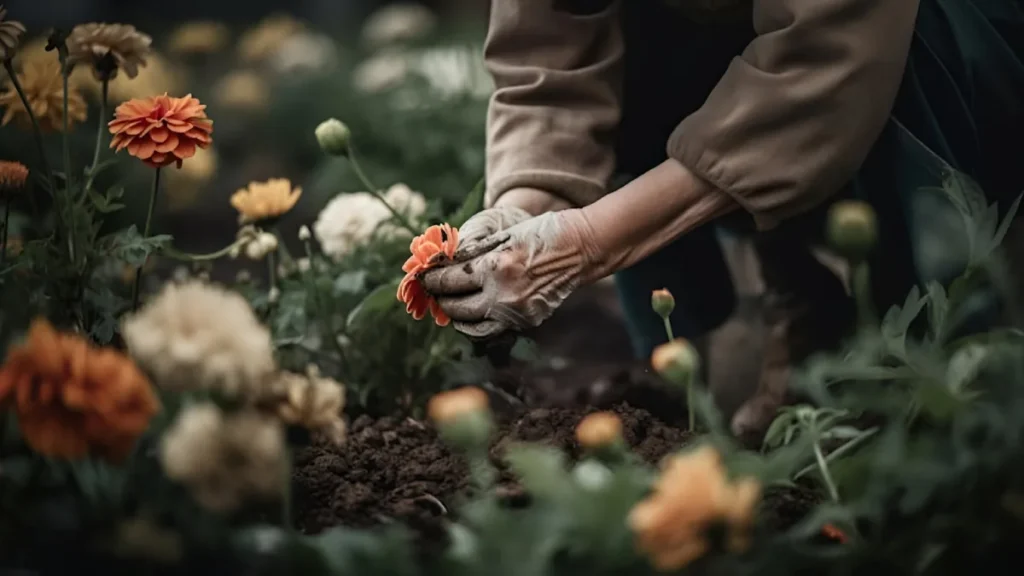How to kill weeds effectively while ensuring the well-being of your flowers is crucial for a thriving garden. Keeping your garden colorful and prospering is striking a careful balance between providing for your favorite blooms and controlling weeds that keep coming in. In addition to competing with other plants for vital resources like sunlight, water, and nutrients, weeds can detract from your garden’s aesthetic appeal. The challenge lies in finding effective methods how to kill weeds without causing harm to your beloved flowers.
In this guide, we will explore how to kill weeds safely:
Weeding by hand:
- Examine your garden frequently, and pull weeds by hand. Make sure to eliminate the entire root system of the weeds by pulling them gently. Hand weeding is most effective when done regularly since it keeps weeds from taking root.
Mulching:
- Mulching is an easy-to-use but effective way to stop weed growth. Cover your flowers with a layer of organic mulch, like bark, wood chips, or straw. This stops weeds from sprouting and getting the sunlight they require to thrive, in addition to assisting in temperature regulation and soil moisture retention.
Appropriate distance:
- Plant flowers with sufficient space to prevent weed growth, reduce resource competition, and create an attractive atmosphere that discourages weed growth.

How to kill weeds with vinegar:
- You may use regular household vinegar to make a natural weed killer. Combine vinegar, water, and a tiny bit of dish soap. Be cautious not to spray this solution directly onto your flowers, but rather on the leaves of weeds. While vinegar is an effective herbicide, it should only be used sparingly to prevent harm to visually appealing plants.
Making use of corn gluten meal:
- Corn gluten meal is a natural pre-emergent pesticide that prevents weed seed germination in early spring, preventing weed blooms and not working against established weeds.
How to kill weeds by boiling water:
- Boiling water is an effective way to kill weeds, even those with deep roots. Be careful to target only the weeds and take safety measures to prevent burning.
Use of salt:
- Weeds can be killed by applying table salt, however, care should be taken since salt can make soil unsanitary over time and shouldn’t come into contact with plants that you want to grow.
Sunlighting and cover crops:
- When sown in the off-season, cover crops help to improve soil health by inhibiting the growth of weeds. Future plant beds can be prepared with solarization, which successfully kills weed seeds by trapping heat in clear plastic.

How to kill weeds with particular herbicides:
- Select herbicides selectively targeting weeds without harming flowers, read labels thoroughly, and apply with precision, ensuring compatibility with garden plants and minimizing exposure to flowers.
Conclusion:
How to kill weeds without harming your flowers requires a combination of preventive measures, careful selection of products, and consistent maintenance. Regular maintenance and a deliberate weed control approach can effectively eradicate invasive weeds, enhancing the health and aesthetic appeal of your garden. This guide will explore effective methods for eliminating weeds while protecting your flowers, helping you maintain a beautiful and flourishing garden.
A frequently asked questions:
Q1: How to kill weeds permanently from my garden?
A1: Weeds can be permanently controlled and eliminated by applying a pre-emergent herbicide in the early spring and using a post-emergent herbicide as needed.
Q2: How to kill weeds in flower beds?
A2: Use a mix of manual weeding, mulching heavily, and spraying a specific herbicide meant for use around ornamental plants to eradicate weeds from flower beds.
Q3: how to kill weeds naturally?
A3: To naturally eradicate weeds, utilize methods such as manual removal, mulching, boiling water, vinegar, or a salt and dish soap mixture.



